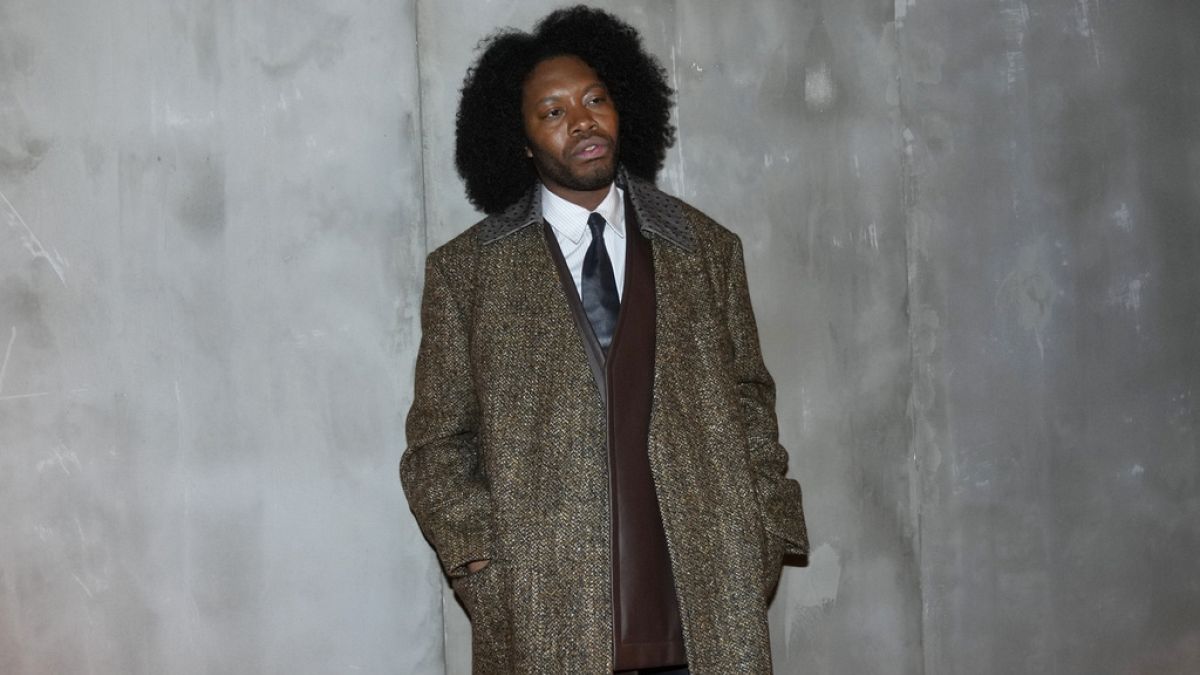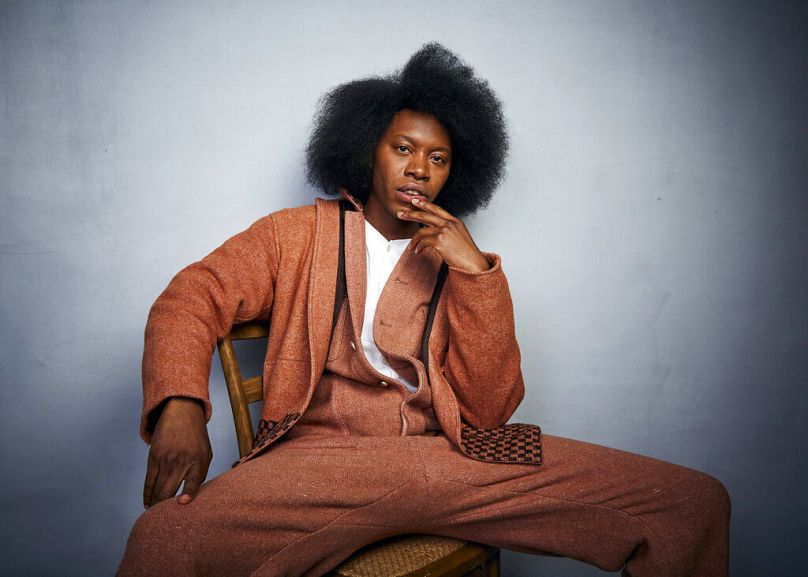The UK Prime Minister Rishi Sunak says the idea is 'concerning' but the proposed Black Out theatre nights aren’t breaking the law. The theatre is simply aiming the nights at a Black audience, instead of actively precluding other potential customers from coming, writes Jonny Walfisz.
American playwright Jeremy O. Harris has been criticised by UK Prime Minister Rishi Sunak ahead of the West End debut of ‘Slave Play’.
‘Slave Play’ is due to run at the prestigious Noel Coward Theatre in London where it will host two “Black Out” performances in its three-month run from 29 June. The Black Out performances will be solely aimed at an “all-Black-identifying audience”.
Jeremy O. Harris’s play was a huge hit when it came to Broadway in 2018. The then-29-year-old playwright’s piece is an examination of sexual politics in interracial relationships from a cotton plantation in the Antebellum South through to modern times.
It became the most Tony-nominated non-musical play in history when it received 12 nominations at the 2020 awards, although it didn’t walk home with any statuettes.
Ahead of the West End debut this year, Harris spoke to the BBC about the two proposed Black Out nights.
“The idea of a Black Out night is to say: this is a night that we are specifically inviting black people to fill up the space, to feel safe with a lot of other black people in a place where they often do not feel safe,” Harris told presenter Sarah Montague.
“I think that one of the things that we have to remember is that people have to be radically invited into a space to know that they belong there. In most places in the West, poor people and black people have been told that they do not belong inside of the theatre.”
Racist run
The news of the interview quickly caused uproar on the internet, with many people calling the suggested two-night run racist.
This uproar reached the top of the UK government as Rishi Sunak’s office commented the prime minister found the idea “concerning”.
“The prime minister is a big supporter of the arts and he believes that the arts should be inclusive and open to everyone, particularly where those arts venues are in receipt of public funding,” the spokesman said.
“Restricting audiences on the basis of race would be wrong and divisive.”
It’s a pretty incredible moment that the highest-level politician in the country is responding to the suggestion of running two Black Out performances in a West End theatre.
Are you sitting comfortably?
For Harris, this might be exactly the response he was hoping for. ‘Slave Play’ is a confrontational piece that forces viewers to examine the psychological impact of centuries of racist society. In the marketing for the West End run, the company has pushed the line: “Is London Ready for Slave Play?” showing their awareness of how potentially antagonistic it could be to British audiences.
Harris has also responded to online critics questioning why the Black Out nights should be allowed given an imagined reversal would be clearly problematic. “I don't have to imagine the roles were reversed in my grandparents' lifetimes AND WORSE,” he wrote on X, in addition to his explanation in the original interview of how Jim Crow laws forced racial segregation in living memory.
There are two strands of criticism surfacing online about the idea and it’s worth unpacking both. The first is that the policy itself should be legally allowed by the UK’s anti-discrimination laws.
The Equality Act of 2010 in the UK requires businesses can’t discriminate on who uses their services based on race, among other factors such as gender and sexuality. It’s this law that some commentators are pointing out.
However, the proposed Black Out nights aren’t breaking that law. The theatre is simply aiming the nights at a Black audience, instead of actively precluding other potential customers from coming.
“To be absolutely clear, no-one will be prevented or precluded from attending any performance of Slave Play,” the producers of the play have confirmed. Harris has also written that he’s “not even saying BLACKS ONLY I'm saying I'm inviting black ppl first! They can bring their white friends or lovers if they want.”
There goes any argument about legality then. What about criticisms that the policy isn’t inclusive, such as the one made by Sunak?
Firstly, it’s not a new idea. Specific performances of plays by Black playwrights aimed at majority-Black audiences have been done by the Lyric Hammersmith, the Theatre Royal Stratford East and the Almeida Theatre.
Secondly, it addresses a genuine divide at the heart of Britain’s theatre industry.
There are some incredible Black theatre makers who are making brilliant work, such as Kwame Kwei-Armah, who recently announced his departure as artistic director of the Young Vic, or Ryan Calais Cameron, whose play ‘For Black Boys Who Have Considered Suicide When the Hue Gets Too Heavy’ was nominated for Best New Play at last year’s Laurence Olivier Awards and returns to the West End this year.
But Black playwrights, actors, and directors are still few and far between on British stages. The divide is even more obvious though in the audiences. As theatre in the UK gets increasingly expensive, audiences are skewing older, wealthier and whiter.
Given the prestige Harris brings to the West End with his superlative work, his desire to ensure that the audience he wrote the play for – one that is typically excluded from the space it will be performed – are prioritised.
Harris is also putting his money where his mouth is, by ensuring that the play is affordable to everyone with 200 tickets a week priced between £1-20 (€1.20-23.40).
The Black Out nights will be on 17 July and 21 September. Harris puts it best: “As someone who wants and yearns for black and brown people to be in the theatre, who comes from a working class environment, and so wants people who do not make over six-figures a year to feel like theatre is a place for them, it is a necessity to radically invite them in with initiatives that say 'you're invited. Specifically you'.”





